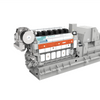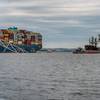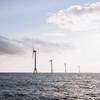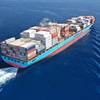Retrofit Solution for LSF Engines
Chinese shipbuilding conglomerate China State Shipbuilding Corporation (CSSC) said that its worldwide equipment service subsidiary CSSC Marine Service Co (CMS) is using its expanded network of service stations to deliver a retrofit solution to engine starting problems that may occur with less viscous low-sulfur fuels (LSF).
Some two-stroke engines using common-rail injection report problems reaching and maintaining high enough fuel rail pressure due to wear of fuel pumps, starting air problems or leaking injection control units.
The concern is amplified when using fuels that are lighter and less viscous than heavy fuel oil, such as many of the very low sulfur fuel oil blends ship owners are likely to use to comply with IMO’s sulfur cap from 1 January 2020. Less viscous fuels require higher pumping pressure or engines can fail to start.
CMS’ solution is available for common-rail RT-Flex engines with five to seven cylinders of 48-60mm bore deploying two or more fuel pumps. The Fuel Rail Booster pump upgrade guarantees and maintains fuel rail pressure required for a clean, first-time start.
The system draws on the same fuel pump as the engine’s fuel supply unit, offering redundancy and reducing vessels’ spare parts inventories. It also reduces starting air consumption, enables planned maintenance and can reduce maintenance costs and potentially extend time between overhauls.
CMS President Andrew Stump said: “We developed this solution following reports received from our customers of engine starting failures encountered when using low sulfur fuels. Our Fuel Rail Booster pump upgrade service greatly reduces the risk of an emergency during maneuvering and pays for itself if just one missed start is avoided.”
CMS has already installed the solution on several vessels and is delivering the retrofit through an expanded number of service stations worldwide. The company has opened three service hubs – in South Korea, Singapore and Hamburg – and five service stations since it was founded in 2017. It has previously stated its ambition to open six service hubs and 28 stations by 2020.
Service stations are located in China (Qingdao, Gaungzhou, Chengxi and Shanghai), South Korea, Singapore, Hamburg and Switzerland. CMS also has partner stations in countries including Brazil, Turkey, Poland, South Africa, Oman, Qatar, Dubai, US, New Zealand and Greece.
Andrew Stump added: “CMS has secured several maintenance and inspection agreements since its launch. We will continue to establish the infrastructure required to satisfy these and to further expand our services to the marine sector.”










